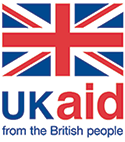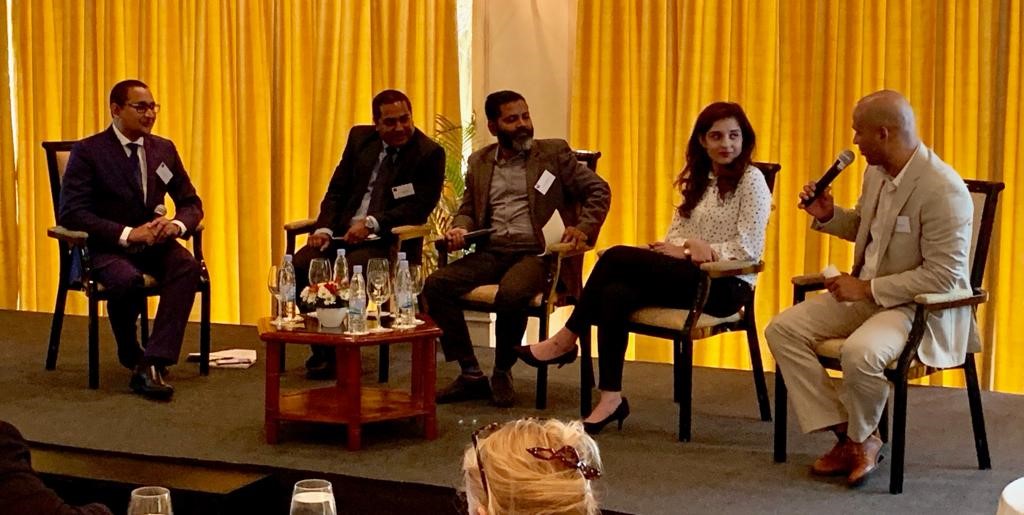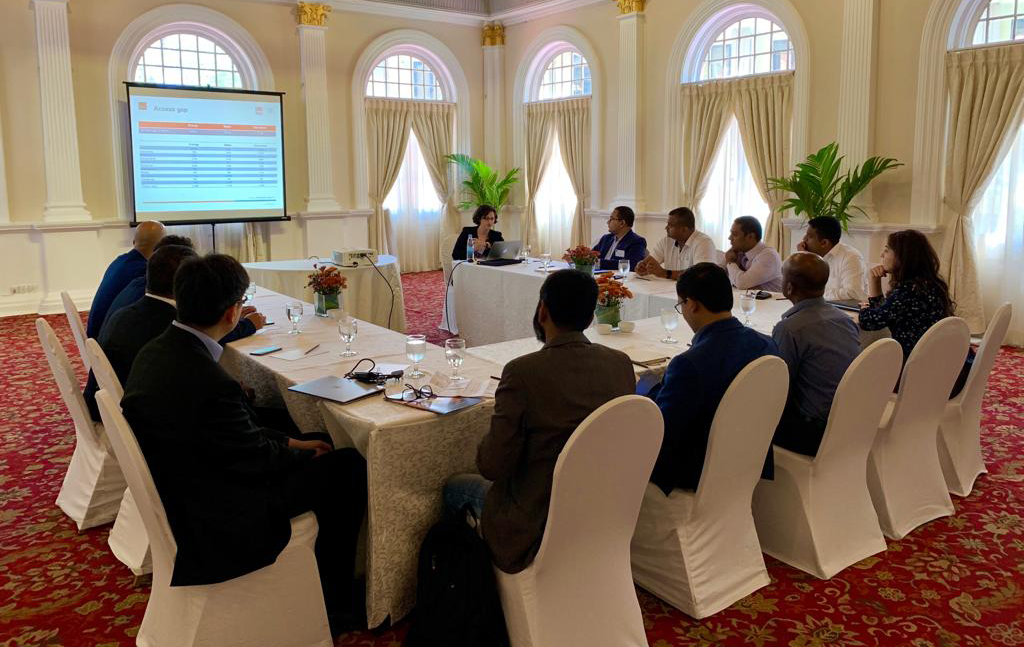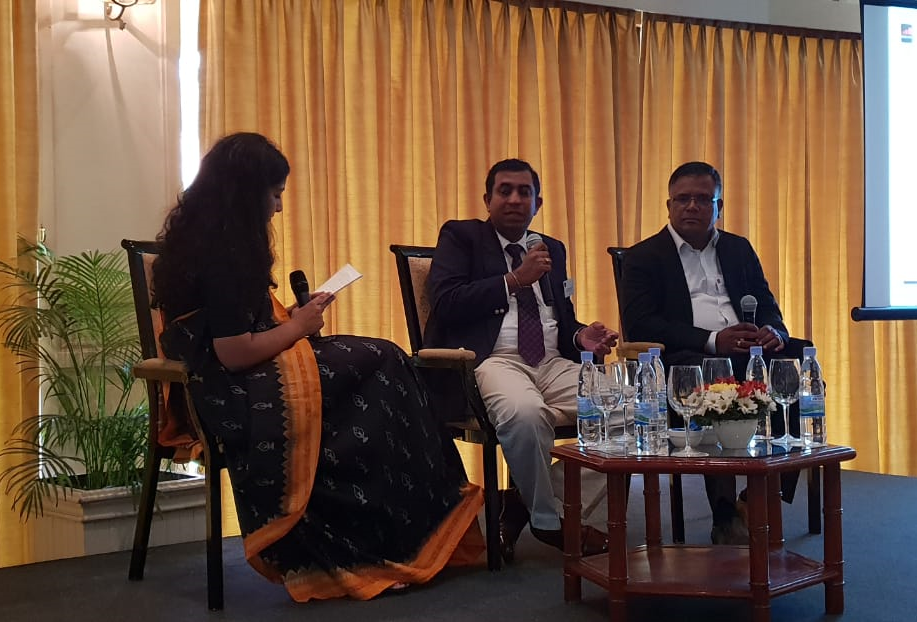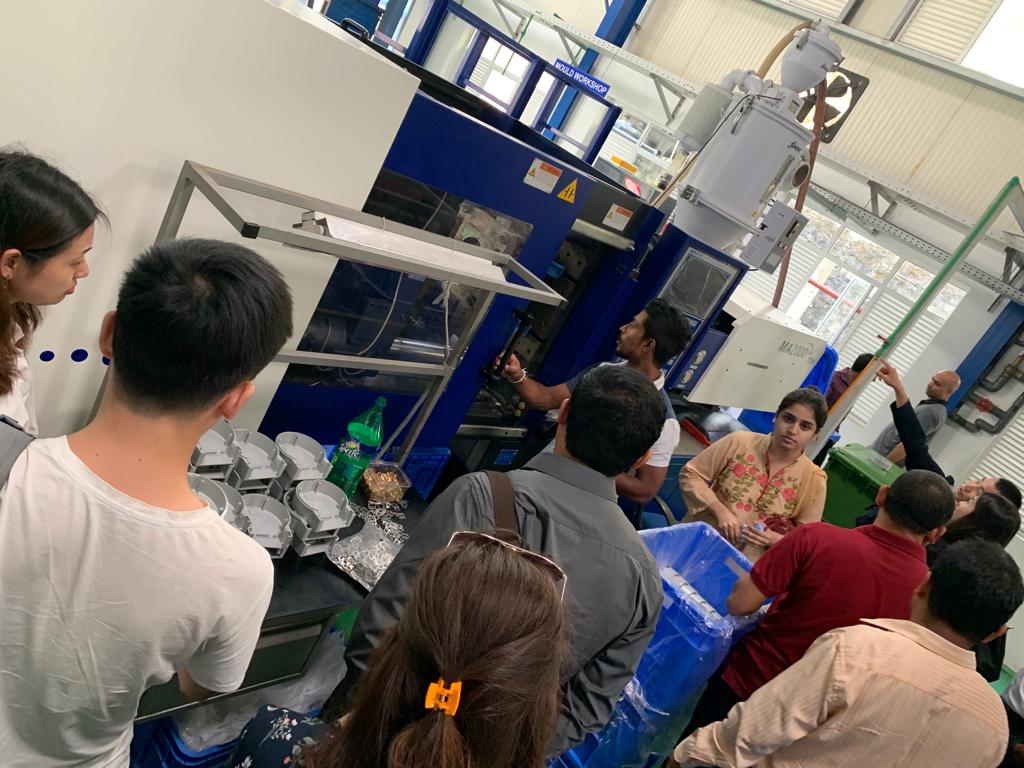In the last week of January, our team gathered in Colombo to host the GSMA Mobile for Development (M4D) Utilities programme’s Asia Industry Forum. The forum brought together actors from the mobile, energy, water and sanitation sectors that are striving to improve access to essential utility services in the region. The Hon. Minister of Power, Energy, and Business Development in Sri Lanka, Mr Ravi Karunanayake, inaugurated the forum. The forum was attended by 55 participants from 12 countries and 33 organisations including mobile operators, energy, water and sanitation service providers, start-ups, funders and other stakeholders such as the International Water Management Institute, Asian Development Bank, and Toilet Board Coalition. In this blog, we have captured some of the key take away messages from the event.
Urban utility services are a strong commercial opportunity for Asian mobile operators
One of the objectives of the forum was to understand the drivers and challenges for Asian mobile operators in getting involved in utility access solutions – whether through mobile payments, mobile Internet-of-Things (IoT) or basic mobile services such as voice and messaging.
In a panel discussion, operator representatives from Afghan Wireless Communication Company, Jazz Pakistan (Veon group), Mobitel Sri Lanka and Robi Bangladesh (Axiata group) discussed how mobile operators increasingly see commercial benefits in enabling utility services. Mobitel Sri Lanka said that they consider themselves as a service provider, as opposed to just a channel of connectivity and view utility payments as a platform for increasing mobile subscriber activity. Robi Bangladesh insisted that even though current revenues from utility services remain small, they are convinced about the transformational potential of digital utility platforms for mobile operators.
In a roundtable discussion, the mobile operators discussed the need to be ‘leading’ on mobile enabled utility services to demonstrate the commercial and social impact of these solutions in Asia. It was evident that mobile operators see governments and traditional on-grid utilities as their preferred partners in trialling these solutions, due to their reach and the underlying opportunity to bring digitisation at scale.
The three P’s of partnerships: Persistence, persistence, persistence!
Over the last five years, the M4D Utilities programme has funded a number of grants that supported partnerships between mobile operators and energy, water and sanitation utilities. At the forum, one of our grant-recipient organisations – Jazz, talked about how they are testing smart metering systems to provide real-time monitoring for the utility for urban electricity grids in Pakistan. We were also joined by Practical Action, who are working in partnership with Robi Axiata and municipalities to develop a mobile application for citizens to request municipal water and sanitation services in Bangladesh.
Another Innovation Fund grantee and the largest mobile operator in Sri Lanka, Dialog, has developed and installed smart electricity meters in partnership with the Lanka Electricity Company (LECO). Representatives from this initiative joined the forum to share their experiences from building and managing the partnership. Dr Narendra de Silva, the Head of Engineering at LECO, pointed out that there can be a big difference in the pace and style of work between mobile operators and utilities. While mobile operators are ‘fast runners’, collaborating with the utilities is akin to ‘rock climbing’ and ‘persistence’ is the key to success in utility partnerships. Dr Indika Samarkaroon, the Head of IoT and Partnerships at Dialog, mentioned that even after they received the GSMA funding, it took three months and three workshops to get the utility’s buy-in on the project.
Despite the challenges, they highlighted that there is very high demand from the customers to switch to smart meters and that Dialog has focussed on developing an easy customer interface to ensure that the switch-over is smooth and well received.
To see the smart meter collaboration in action, the forum’s participants visited the smart meter factory in the outskirts of Colombo where LECO Lanka is locally manufacturing the smart meters. This was followed by a visit to the Dialog Mobile Communications Research Lab at University of Moratuwa, which was a good example of engaging budding engineers in developing local, low-cost solutions tailored for Sri Lanka needs.
Integrating digital finance solutions brings direct impact
A number of the M4D Utilities grantees who are trialling innovative payment solutions in energy, water and sanitation provisioning in Asia also joined the forum. Among them was Electric Vine Industries (EVI), whose team talked about how they have integrated TCASH, Telkomsel’s mobile money service, into their power metering payment platform for micro-grids in Indonesia. This will help EVI reduce the cost and operational challenges of dealing with cash. At the same time, operating in very remote parts of Indonesia, EVI have introduced T-Cash in areas where Telkomsel benefit from lesser brand recognition. EVI is supporting Telkomsel’s customer base expansion by establishing a first bill payment relationship with the customers for them.
We also had the start-up, eSewa, the largest provider of payment wallets in Nepal – and a GSMA Ecosystem Accelerator portfolio start-up, speak about how the electricity utility in the country was not digitised, which required them to build the whole ecosystem, including the software backend, in order to enable utility bill payments. As a result, electricity bill payments now account for the highest transaction value on the eSewa platform. In another unique partnership, the eSewa agents are acting as business development agents for Gham Power, another M4D Utilities grantee that develops solar microgrids and commercial off-grid systems in Nepal, to source opportunities for their new solar pumping solution in Nepal.
We would like to thank all the attendees, speakers and organisers, particularly the government of Sri Lanka and Dialog Axiata and for making our forum a success.
This initiative is currently funded by the UK Department for International Development (DFID), the Scaling Off-Grid Energy Grand Challenge for Development and
supported by the GSMA and its members.
